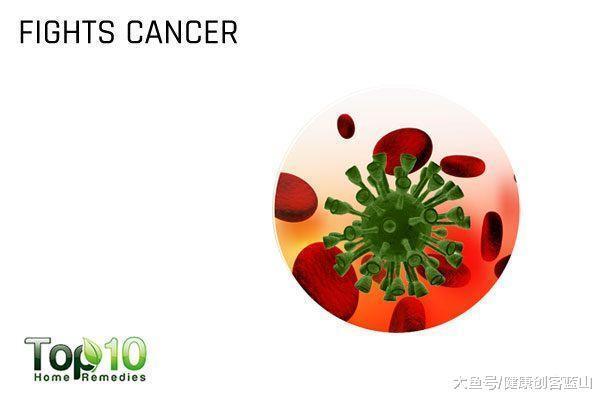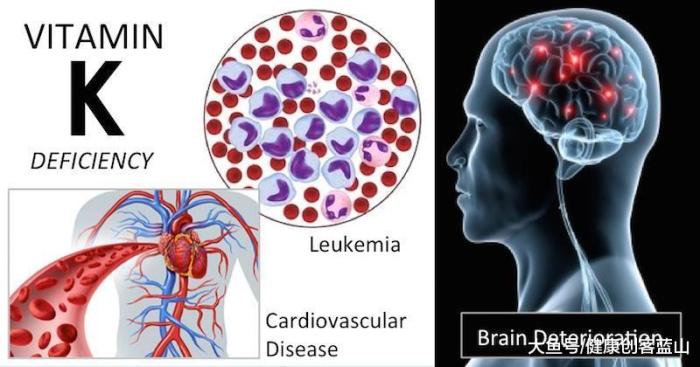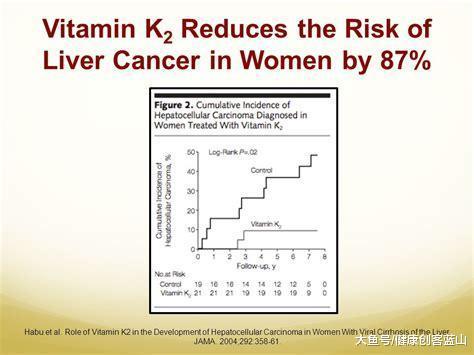维生素K治疗肝癌和前列腺癌:提高生存率
VITAMIN K FOR Liver and Prostate Cancer: Improving Survival Rates
维生素K在处理各种晚期实体肿瘤方面的前景已经在体外和动物研究中得到证实
维生素K在处理各种晚期实体肿瘤方面的前景已经在体外和动物研究中得到证实,与传统化疗相结合,它在肺癌中有益处,但在胃肠道癌症中没有。另有27项研究已经证明,每天静脉注射高达2.5克的大量维生素K2是安全的,不会增加化疗的毒性。
维生素K在处理各种晚期实体肿瘤方面的前景已经在体外和动物研究中得到证实
其他积极的发现以两份病例报告的形式出现,同样来自日本。在第一个研究中,一名72岁的白血病妇女在标准治疗失败后,在她的治疗方案中添加了维生素K2后,她的病情完全缓解。在第二组中,一名85岁的乙肝病毒感染肝细胞癌患者选择服用维生素K,但没有进行化疗。CT扫描显示肿瘤明显消退,血液肿瘤标志物均恢复正常。
维生素K降低女性患肝癌风险高达87%
乌拉圭的一项研究表明,一组前列腺癌患者的血清标志物表明,补充维生素C和K后肿瘤细胞遭到破坏。
最近发表的研究表明,维生素K可以减少肝癌复发,延长甚至挽救生命。第一次报告的61名患者在接受手术治疗后无癌症。32人被分配接受维生素K2类似物menatetrenone, 29人接受安慰剂。32人补充组在12个月时肿瘤复发率为12.5%,在24个月时为39.0%,在36个月时为64.3%。对照组复发率显著高于对照组,分别为55.2%、83.2%和91.6%。补充组100%存活一年,87%在36个月时仍然存活; 在对照组中,这两个数字分别为96.4%和可怜的64%。
https://s.click.taobao.com/Z5iZKNw
VITAMIN K FOR Liver and Prostate Cancer: Improving Survival Rates
Vitamin K’s promise in managing a variety of advanced solid tumors has been established in vitro and in animal studies, with benefits shown in lung cancers but not in gastrointestinal cancers, when combined with traditional chemotherapy.26,27 Other studies had already demonstrated that massive doses of vitamin K2, up to more than 2.5 grams given IV per day, were safe and caused no enhancement of the chemotherapy toxicity.28
Additional positive findings came in the form of two case reports, also from Japan. In the first, a 72 year-old woman with leukemia who had failed standard therapy experienced complete remission after vitamin K2 was added to her therapeutic regimen.29 In the second, an 85 year-old man with hepatocellular carcinoma after hepatitis C infection chose to take vitamin K but no chemotherapy.30 His tumor markedly regressed by CT scan, and his tumor markers in blood all normalized.
A study from Uruguay demonstrated that serum markers in a group of prostate cancer patients indicated tumor cell destruction following supplementation with vitamins C and K.31
Recently published studies have revealed vitamin K’s power to reduce recurrence of liver cancer—extending and even saving lives. The first reported on 61 patients documented to be free of their cancers following surgical treatment. Thirty-two were assigned to receive a vitamin K2 analogue called menatetrenone, while 29 received placebo.32 The supplemented group had recurrence of tumors of 12.5% at 12 months, 39.0% at 24 months, and 64.3% at 36 months. In the control group the recurrence rates were significantly higher: 55.2%, 83.2%, and 91.6%, respectively. And 100% of the supplemented group survived a full year, with 87% still alive at 36 months; among controls those numbers were 96.4% and a dismal 64%, respectively.



.png)
.png)